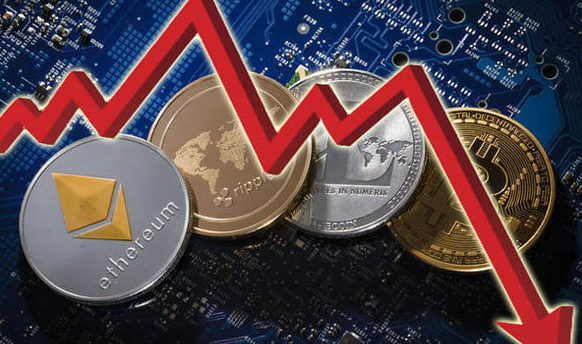Blockchain’s Destiny: The Utility-Token
After massive gains, doomsday prophets dubbed the crypto market a bubble wrought by speculative hype. The pessimists are absolutely correct. Everyone in the space acknowledges the impending calamity, yet no one wants to admit that their chosen coin might fall away, float off like wayward vapor. The issue stems from the reason people purchase cryptocurrency. No one takes a genuine interest in proposed blockchain solutions or technological innovations; these developments exist as window dressing, mere signs a coin’s price may go up. Too often no one intends to actually use the technology. They just eye the market ticker as the value of their stockpile increases.

In December of 2017 none of this mattered. Newcomers perused some articles published by their chosen ICO, glanced at a Reddit page, and then watched investments skyrocket. You bought coins and made money. All the while you thought of yourself as an adept tradesman, profits sure to grow directed by your masterful hands. But now, the market-wide supernova, where coins arbitrarily shoot up 300%, is over. Enthusiasm wanes underfoot of a vengeful bear.
So what’s next? Bitcoin will be forced to innovate, gain adopters who actually want to use it, or it will crumble under the weight of avarice. The idea that the first and biggest crypto cannot fade to irrelevance is the oldest naivete; Rome fell, and the Titanic bit the bubbles. If unaddressed, ships with holes in the hull eventually sink. It just takes a while. The general market can never thrive tethered to the ever-changing health of Bitcoin.

Soon investors will turn to utility-tokens for their market independence and incentivized use-cases. These currencies differ from other coins; utility-tokens are not bound by fickle hype. Users will buy them not for their speculative value but to actually use the token. The problem arose when no one wanted to exchange goods and services for cryptocurrencies. Speculation, the fickle mistress, cannot exist as the sole source of demand. Downward volatility shook the faith, and it will not return for a long while, if ever. Market movements will not affect well-crafted utility tokens because they generate value through use rather than storage. Meaning their design incentivizes users to exploit the token’s functionality instead of exchanging the currency on the open market.
For instance, let’s say my utility-token allows you to crowdfund an indie developer’s video game idea (more on this later). Instead of selling my cryptocurrency, I re-invest my tokens into a crowdfunding portal on the blockchain in order to sponsor the in-development game. When the hypothetical game gets fully funded and is later monetized, the finished creation pays me lifelong dividends corresponding to my earlier investment. Now I’ve generated more from using the token than I would have from selling it. Currency of this nature promises to persist unhampered by the movement of Bitcoin. Properly engineered utility-tokens will exist within internal economies. Supply and demand can then be handcrafted to benefit all members of the token’s ecosystem. These cryptocurrencies will not be subject to the overarching market, only the value of the services they offer.
Unfortunately, creating benefits based internal economies does not appear on the average ICO’s to-do list. Most companies rarely concern themselves with more than empty promises, saying the word “decentralization” and gulping down your money. For the past several months I’ve lived behind this curtain; I work for an ICO called Game Loot Network. We developed a gaming distribution platform, soon realizing that our proposed features required the blockchain and cryptocurrency.
To develop our marketing strategy, we surveyed the ICO landscape. We quickly noted the fluff that everyone observes, ideas without any product behind them blissfully generating millions of dollars. The conmen behind these companies suckled money from money-eyed hopefuls like mosquitos at the vein. Everyone promised vague tech revolutions, but it seemed clear that nothing existed behind the facade. Yet these companies overflowed with cash, so how could we appeal to a space that preferred hollow buzz to authentic utility? The answer seemed obvious once it came. Forget the rules, abandon the ICO script, and leave the get-rich-quick crowd to their schemes. The community we build cannot consist of folks waiting to sell from the sidelines. True disruption requires a utile product and real engagement, or it’s just hype masquerading as revolution.

Our platform is transformative. It enables indie game developers and rewards gamers like nothing else yet created, and our LOOT utility-token functions exactly as I said utility-tokens should. And there’s more than a roadmap. Call us crazy, but we were bold enough to create an actual product. We will forever alter the gaming industry. But it’s possible that Game Loot Network has nothing to offer you. We don’t want speculators. The time has come to take gaming back from the corporations and give it to the users. For that, you need revolutionaries.